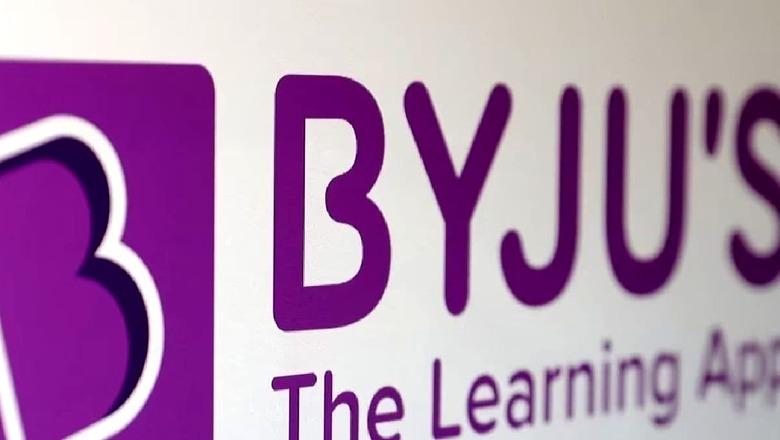
views
A government investigation has reportedly uncovered lapses in Byju’s corporate governance but has cleared the online education startup of financial fraud. It identified governance shortcomings that contributed to the startup’s mounting losses, Bloomberg reported, citing sources, who requested anonymity as the report has not yet been made public.
According to Bloomberg, the Ministry of Corporate Affairs’ probe found no evidence of wrongdoing, such as fund siphoning or financial account manipulation.
At its peak, the ed-tech company was valued at $22 billion. Business boomed during the two years of the COVID-19 pandemic, but as infections subsided and classrooms reopened, its cash reserves dwindled.
Byju’s is now contending with several bankruptcy cases both in India and abroad. Although it has raised over $100 million from existing investors through a new share issuance, a court has barred the company from using those funds.
The findings of the government investigation provide some support for founder Byju Raveendran, who has faced accusations of mismanagement from disgruntled investors.
Last year, three shareholders, including Prosus Ventures and Peak XV Partners (formerly Sequoia Capital India), resigned from Byju’s board due to disagreements with Raveendran over business processes and internal controls.
Additionally, the report temporarily halts the possibility of further scrutiny by officials on issues that have already been investigated.
According to Bloomberg, the report does not directly address whether Raveendran is personally responsible for the governance lapses or whether he is qualified to lead the company. Disgruntled investors have called for his removal, citing failures in management and compliance.
The report does little to alleviate the company’s broader issues. The unprofitable startup’s rapid expansion resulted in a cash crunch and a significant drop in its valuation. Now, it faces multiple lawsuits in both India and the US.
Weak Corporate Governance
The probe found that weak corporate governance and compliance practices, coupled with a shift in the funding environment, contributed to the company’s escalating losses. Investigators also concluded that the startup’s failure to hire professionals to oversee finances and compliance contributed to these losses, the sources told Bloomberg.
The report reveals that Byju’s did not fully disclose acquisition details to all directors and that meetings to approve these deals were often called on short notice. However, it also acknowledges the founders’ reasoning that some directors were investors in rival companies.
Recently, Dutch investment firm Prosus has written off USD 578 million (about Rs 4,800 crore) that it invested in Byju’s.
In September 2022, Prosus had lost significant influence on Think and Learn, which owns Byju’s brand, as its stake in the edtech firm came down to 9.6 per cent.
“The group accounts for its 9.60 per cent effective interest in BYJU’S at fair value through other comprehensive income. The fair value of BYJU’S investment subsequent to the loss of significant influence is USD 578 million,” Prosus said in its annual report for the fiscal year ended 2024.
Prosus is among the four investors that have approached the NCLT against Byju’s management and its USD 200 million rights issue.


















Comments
0 comment